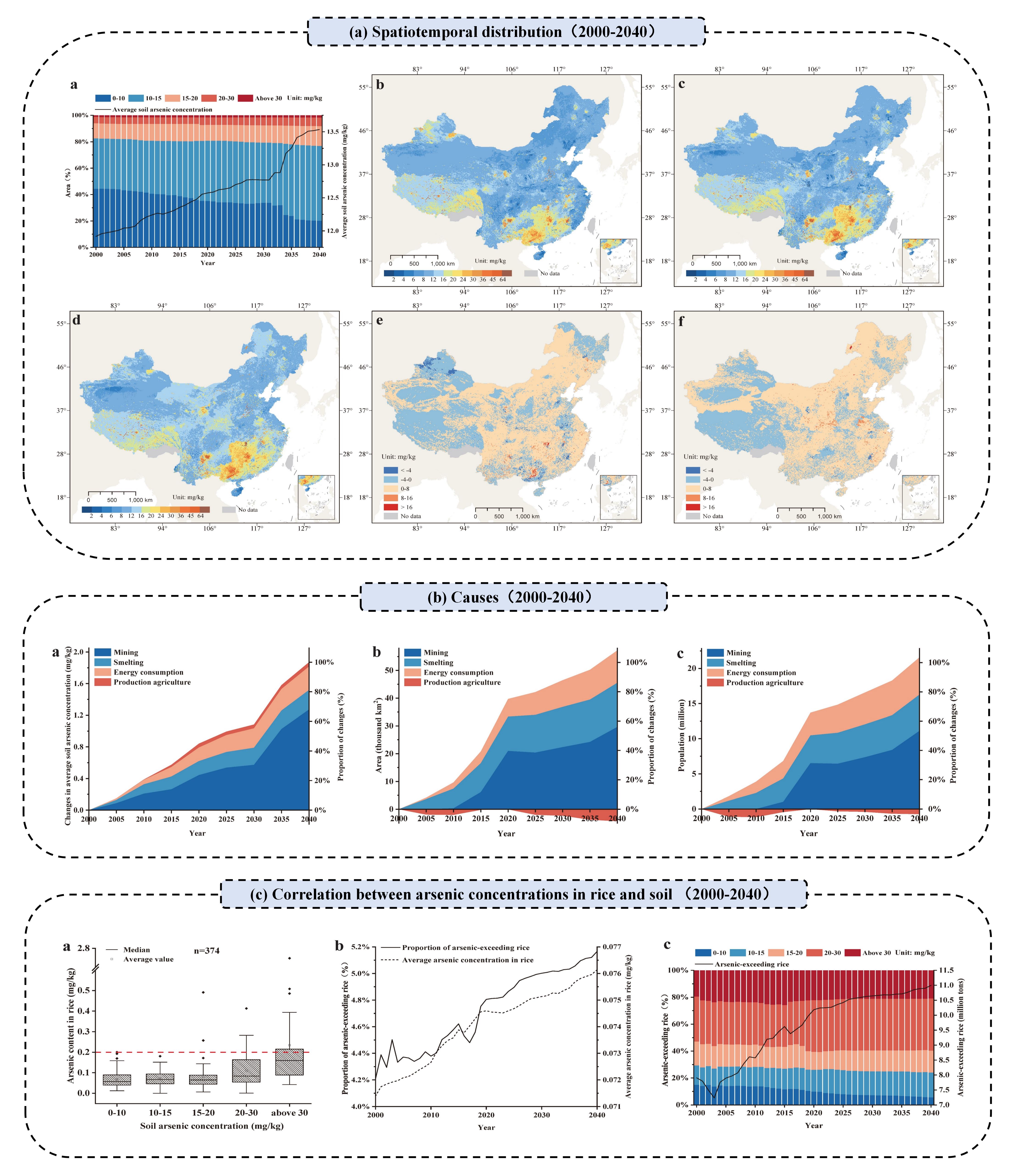
A team led by Researcher LUO Yongming from the Soil and Agricultural Sustainability Key Laboratory of the Institute of Soil Science, Chinese Academy of Sciences (ISSCAS), along with their collaborators, have made significant advancements in understanding arsenic contamination in China’s surface soils. Their research was recently published in Nature Sustainability under the title “Escalating Arsenic Contamination Throughout Chinese Soils”.
Using a machine learning model developed from 3,542 regional surveys encompassing over one million soil samples, the team produced annual maps showing a consistent rise in arsenic levels in China's surface soils from 2000 to 2040. The results indicate an increase from an average arsenic concentration of 11.9 mg/kg in 2000 to 12.6 mg/kg in 2020, projecting a further increase to 13.6 mg/kg by 2040. The study identifies primary anthropogenic sources such as non-ferrous metal mining (68.0%), fossil energy consumption (15.8%), non-ferrous metal smelting (13.2%), and agricultural activities (3.0%) as key contributors to this rise.
Moreover, the research highlights how agricultural practices, particularly the use of arsenic-laden fertilizers and pesticides, not only raise the overall arsenic levels but also reduce the area of land with arsenic concentrations exceeding 20 mg/kg due to crop absorption, akin to phytoremediation. However, the study warns that arsenic absorbed by crops can enter the food chain, posing potential health risks.
The research further discovered that 13.3% of the rice grown in fields with soil arsenic levels between 20 and 30 mg/kg exceeded safety limits, with about one-third of arsenic-exceeding rice in China coming from these fields. This points to the urgent need for reassessment of current standards and increased focus on affected areas to ensure food safety.
This groundbreaking study provides a macroscopic method for quantifying the environmental impact of human activities, with potential applications not only in China but globally across various research fields. This work is anticipated to inform future strategies in soil science, environmental science, agriculture, geochemistry, geography, and food science.
This work was funded by the Natural Science Foundation of China (NSFC), China’s Ministry of Science and Technology (MOST), and the Chinese Academy of Sciences (CAS).

Image: An illustration of the main idea and results from Zhang et al. Nat Sustain (2024). (Credit: ISSCAS)
Attachment Download: